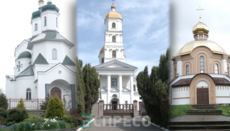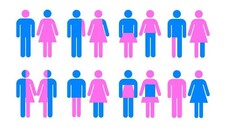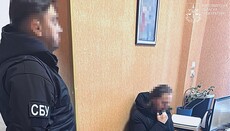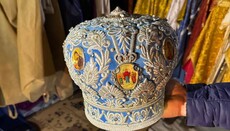Greek priest reminds Phanar of the document on “Ukrainian issue”

Protopresbyter Theodore Zisis reminded the Patriarchate of Constantinople of a document signed in 2014 by the Primates of Orthodox Churches at Phanar.
Protopresbyter Theodor Zisis, Professor Emeritus of the Theological Faculty of the University of Aristotle in Thessaloniki, believes that a conciliar solution to the “Ukrainian issue” appeared long ago.
In particular, the Greek edition Romfea published an article by Father Theodore entitled “The Council of Primates made a decision on the Ukrainian issue”, in which the author recalls the Message of the Council of Primates of the Orthodox Churches, which was drawn up at Phanar in 2014.
According to this text, which was also signed by Patriarch Bartholomew, overcoming the Ukrainian schism is possible only through repentance and correction of schismatics.
Below we publish the article of Protopresbyter Theodore Zisis in full.
"Forgotten document"
"1. Phanar's soaring arguments
The world of Orthodoxy is deeply concerned with the Ukrainian issue, namely – the anti-canonical granting of autocephaly to the schismatic groups of Ukraine in circumvention of the canonical Church in Ukraine, from which they broke away and were punished by excommunication and anathema.
The punishments imposed by any Local Church in accordance with the sacred Rules are recognized by all other Local Churches, none of them having the canonical right to interfere with the judicial competence of another autocephalous Church. This is considered to be transgression within the limits of foreign jurisdiction and is qualified as a serious canonical offence.
The Ecumenical Patriarchate, recognizing this basic canonical principle, has so far recognized the punishment of Ukrainian schismatics as the competence of the Russian Church and stated that it will not interfere in its internal affairs.
All the other autocephalous Churches that did not have Eucharistic communion with schismatics, but only with the Ukrainian Canonical Church, headed by Metropolitan Onuphry, did the same.
Suddenly, the Ecumenical Patriarchate declared its position, changed its mind, launched an anti-canonical intervention in the territory of another jurisdiction and, even worse, reinstated the Ukrainian schismatics, disregarding church authority, which imposed the punishment of excommunication and anathema, without any repentance of the dissenters and their return to the canonical Church led by Metropolitan Onuphry.
In order to justify these anti-canonical actions, he outfitted his own historians, theologians and experts on canons/canonics, who put forward anti-historical and anti-canonical positions, the most important of which being: a) that Ukraine is the canonical territory of the Church of Constantinople and b) that the Ecumenical Patriarch has the right to challenge, i.e. to make appellate decisions regarding Ecumenical Orthodoxy as if he were another Pope. Neither of these two positions is true.
Since 1686 to the present day, Ukraine, Kiev is the canonical territory of the Russian Church; the appeal applies to all patriarchs, not only to the Ecumenical Patriarch, within their own jurisdiction, but not around the world.
We showed all this in a series of publications that were distributed on the Internet, and now available in a book called Ukrainian Autocephaly. Anti-canonical intervention of Constantinople leading to a split."
Very popular is our subsequent article on the Internet entitled “Archbishop Ieronymos faces a hopeless situation regarding the Ukrainian issue. Metropolitan Hierotheos of Nafpaktos races to rescue.”
Exceptionally good are the articles by the canonics specialist (connoisseur of canons) Archpriest Anastasios Gotsopoulos, who were also published in a book called “Ukrainian autocephaly. Facilitating dialogue.”
Also, the articles of a very successful conference organized by three Christian organizations in Thessaloniki and the “Council of Orthodox Clerics and Monks” entitled “Ukrainian Autocephaly and the New Ecclesiology of Phanar” will be released in October along with other relevant materials in the double edition of the Divine Way magazine.
2. Why does Phanar violate canonicity?
For centuries, the Great Church of Constantinople supported the canonical tradition and order; therefore, the primacy of honor, its coordinating role and the right of the First See at inter-Orthodox meetings were recognized without any serious reservations.
However, over the past and also this century, the leadership of Phanar has taken a leading role in violation of the Holy Canons as now obsolete and inapplicable, especially with regard to heretics, with whom it seeks to unite without first achieving unity in faith and dogma and by publicly renouncing heresy and misconceptions.
And since the Holy Canons are an insurmountable barrier to unity with heretics and schismatics, Phanar tries to overcome them with the help of post-fatherly theologians, creating a new ecclesiology and elevating the Ecumenical Patriarch to the status of Eastern Pope: not the first among equals (primus inter pares), but the first without equal (primus sine paribus).
Trampling upon these Holy Canons, which it used to guard previously, shakes the authority of Constantinople and leads to doubts about the "advantages of honor", since they have now turned into the "advantage of power" in the papal manner.
The existence of the Pope in the East contributes to the plans of the New Order and the New Era on the way to achieving the goals of globalization. They succeed in this respect with the Pope, for he does not need synodal, collective decisions as a monarch.
They want to achieve the same thing in the East. Patriarch Bartholomew ignores the Council of the Russian Church, to which the Ukrainian Church belongs, ignores the Council of the canonical Local Church of Metropolitan Onuphry, ignores a number of autocephalous Orthodox Churches which refuse to recognize the new pseudo-autocephaly of Ukrainian schismatics, and does everything possible to draw the Greek Church into the abyss of schism.
We all know about the geopolitical projects of Westerners and the Pope to weaken Orthodoxy, especially such strongholds as Greece and Russia, with the help of the explicit intervention of American citizens and diplomats, who put pressure on primates and bishops, forcing them to follow Patriarch Bartholomew into a new great split, as well as to the loss of the First See of the Greek Patriarch in the synodal system of the Orthodox Church.
All theological students, as well as researchers of Tradition, know that the church system is synodal rather than monarchical as it is viewed by papism.
The expressed opinion that it is not only synodal, but also hierarchical leads to a gradual perversion for the sake of the transition to the monarchist system. We will not refute this newly rooted episcopal and papist ecclesiology now, because this is not the purpose of this article.
3. A forgotten decision of the Primates on the Ukrainian issue.
Basically, we would like to show with the help of one more evidence – the present document – that the Ecumenical Patriarch, boasting of having recently founded and activated the Institute of the Primate Council, unknown in church history, with papist anti-synodal inclusions, does not even respect the decisions made by the Primates and him personally, just as he did not respect the decisions taken by the Russian Church with regard to the Ukrainian schismatics, nor the synodal decisions of the Local Churches on the Cretan pseudo-council concerning the deterrence of the “council” or the improvement of pre-conciliar texts; in addition, he did not have respect for himself, since he had previously recognized the jurisdiction of the Russian Church in Ukraine and the punishments imposed on schismatics and promised not to interfere.
In particular, while rereading these days the “Message” published by the “Council of Primates of the Orthodox Churches”, which was held at Phanar on March 6–9, 2014 and examining issues of concern to the Church, we saw there was also considered the Ukrainian issue inter alia, regarding which the Primates, led by Patriarch Bartholomew, wrote in the third paragraph (3) of the general “Message” the following: “We earnestly pray for peaceful negotiations and Ukraine’s recovery from the crisis. We condemn the threat of forced seizure of monasteries and temples and pray for the return of our brothers, who today are out of communion with the Holy Church.”
The “Message” opens the eyes to two serious questions. Firstly, the schismatics in Ukraine undertook or threatened with forceful seizures of the monasteries and temples of the canonical Church and also, what is very important, the most correct solution to this issue, according to the Primates, is the repentant return of the schismatics to communion with the canonical Church.
None of the above was achieved due to the arbitrary anti-canonical recognition of Constantinople of the breakaway groups leading to further secession. The schismatics were reinstated without repentance and return, and violence against the canonical Church is stepping up.
Instead of unification, disagreements grew deeper among the schismatics themselves, since the initiator of the split and pseudo-autocephaly, “Kiev Patriarch” Filaret never recognized his subordination to the new primate of the “autocephalous” church, “Metropolitan” Epiphanius.
4. Featured/Prescribed Solution. Constantinople should acknowledge its mistake, schismatics must return to the canonical Church.
The appeal to this solution by the Primates also explains their refusal to recognize the schismatics as the canonical Church of Ukraine, without repentance and return to the canonical Church, from which they broke away.
Is there no canonical Church? Can we ignore Her and destroy Her? We will provide many jurisdictions in the same place, as some “smart specialists” offer who having caused mayhem and chaos with their early proposals, being groundless and strange, now begin to understand what a split means and offer even worse solutions.
The action of not only common sense, but also humility, would be the recognition by Constantinople of its mistake now that both the deterioration of the situation and further splits are evident, as well as the beginning of the first peace negotiations with the participation of other Local Churches, a kind of extended Council.
As history has shown, not only people make mistakes – they are made by Churches by assimilating heresies or provoking schisms.
In a similar case, St. Gregory Palamas, referring to the Roman Church, says that this is the only Church that does not admit its mistakes and does not want to rise from its fall, although there are many Churches that fell but rose. It looks like an elephant, he says, which because of his weight, if it falls, cannot stand up without help.
The Greek Church should help New Rome, immersed in mistakes for already a century, with the new papal patriarchs, to acknowledge its mistake and rise like all other Local Churches do instead of encouraging it in its fall.
It will be the second Church after Rome, which insists on its fall like an elephant, which does not want to rise, because it selfishly refuses the help of others and does whatever comes into its head."
Earlier, the UOJ wrote that the clergy of the Greek Church published an address on the "Ukrainian issue".





